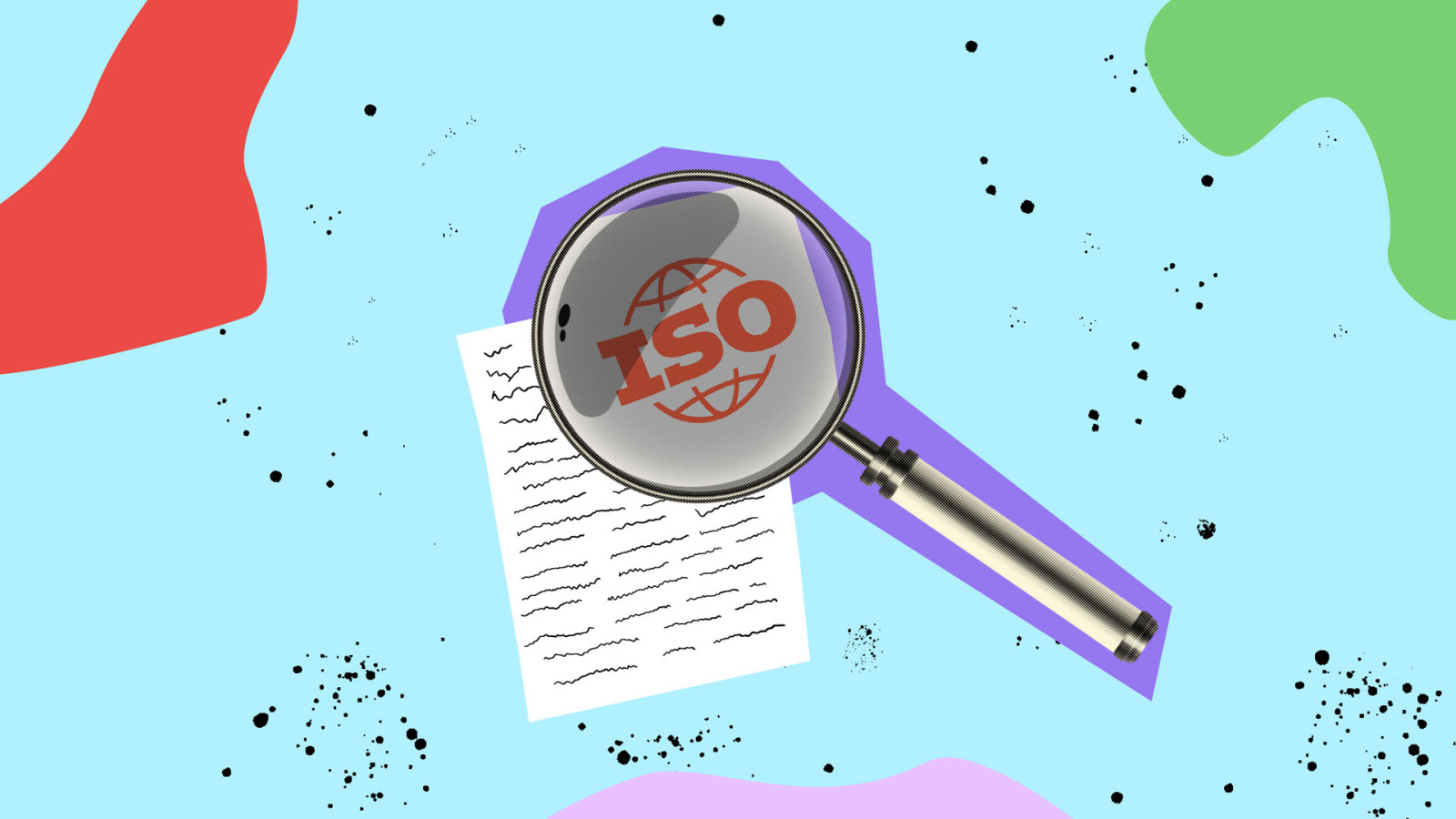The project team members you need for a winning annual report
Published Dec 20, 2023 – By Jane Douglas

Annual reports are about so much more than presenting numbers and policies to shareholders. They are an opportunity to inspire confidence in your company among the full spectrum of stakeholders, from investors to the press.
A great annual report is as much about clear, compelling storytelling as it is about facts and figures. It sells your success and showcases how you deliver on governance, sustainability and competitiveness.
All within the parameters of the Financial Reporting Council’s (FRC) guidance, of course. And all in a way that stakeholders can easily understand, whether they are seasoned corporate players or local communities affected by a company’s work.
Over the years, annual reports have gone from dry documents to exciting multimedia productions put together by a cast of expert project team members. From thought-provoking photography, to infographics that make the complex interesting, interactive videos and dedicated websites, the bar is high for annual report production.
Stewardship, climate and TCFD reports are following suit as these publications increase in significance. According to PWC, 79% of investors say their decision-making is affected by how a company manages ESG risks and opportunities.
But creating an engaging report that embodies your brand’s vision, manages any negative messages, reports with accuracy and stays in line with guidance and regulation is a big task.
Picking the right corporate reporting agency is an important step. As part of that decision, you will need to think about the shape of the project team. This will determine the kind of report you end up with – a staid document or an innovative piece of storytelling that engages your audience.
Project success depends on the project team members and structure you have in place, both agency side and in-house. The skills within that project team will expand or restrict your options.
So what kind of project roles do successful report teams have today?
Agency side
Strategic oversight
An annual report is mission critical. It has a big impact on how your organisation is perceived externally. With that in mind, it can be helpful to have a sounding board for your strategy. Strategy advice can be delivered by several different people agency side, from dedicated strategists to editors or CEOs. But you should have access to a senior team member who has seen their fair share of reports and understands industry trends.
Project manager (account manager)
It’s hard to overstate how important an experienced project manager is to the success of an annual report. With regulatory compliance at stake, a firm grip needs to be kept on project management, from the macro to the micro.
The project manager needs to ensure the editorial and creative team is getting the right messages across in a compelling way, while keeping everything on track for the reporting deadline, but they also need an eagle eye for detail.
This person will be your safety net, double checking that the final report contains the correct words and numbers, and not an earlier draft.
They should be a seasoned project manager who knows that process makes perfect, ideally from an ISO accredited organisation.
Not just a friendly, helpful point of contact, the project manager is the lynchpin. They must understand strategy, creative, typesetting and costing as well as project management so that there are no surprises along the way. They trust their instincts and ask the right questions at the right time.
Editor
This is probably the most visible person on your project team. They will likely have access to your CEO and other key stakeholders within the business. They need to be experienced and have sound judgement, but also highly creative and ambitious. Someone who will encourage you to be bold in the right way, but who is also a stickler for detail and understands the FRC’s guidance.
They can help you with strategy and the right hierarchy of messaging. This project team member will be the champion of your vision, ensuring your brand story shines through from copy to creative and bringing your messaging to life.
This team role also requires some project management experience and the ability to get the best from creatives. The editor acts as a team leader internally.
Depending on your vision for the report, you may want an editor on the project team who has the skill to work on video, animation and infographics, as well as B2B reporting.
Depending on your vision for the report, you may want an editor on the project team who has the skill to work on video, animation and infographics, as well as B2B reporting.
Expert writer
When it comes to interviewing your executives, you need someone who speaks their language and understands the nuance of what they are saying. Someone who can take on the tone of the person they are talking to and know where to put the emphasis when they are ghost writing copy.
This person should have experience dealing with the C-suite. Someone who won’t be phased and who asks the right questions because they have the background knowledge of years of B2B reporting.
If your business is particularly technical, the writer should be a subject matter expert. This project team member should speak in terms that resonate with your key stakeholders.
Designer
A report designer does not just draw up illustrations or put pictures on the page. They need to be a true creative. This team member must understand the strategy behind the report and visualise the key messages in a sophisticated, nuanced way. That is quite a skill and not every designer is up to the task.
But creative brilliance alone is not enough. A report designer needs to be meticulous. The graphs need to be exactly right. They must not accidentally paste in the wrong copy or cut text off at the end of a column.
A report designer needs to be part creative genius, part detail person.
This project team member also needs to be personable and professional. The designer will be directing any board shoots so will be exposed to your most influential internal stakeholders and project sponsor.
The designer will make sure you have an excellent photographer who is on time, doesn’t disrupt board members during their session and who knows how to interact sensitively with senior people.
Video team
With annual reports increasingly seen as a marketing event, report teams are thinking harder about what formats and channels will engage their audience. The project team roles needed for larger organisations today include video experts.
This team member could be a videographer who shoots a straightforward interview, a filmmaker who creates a narrative piece around your sustainability strategy or a multimedia producer who can turn your results into an interactive video looking back at the year’s highlights.
Digital design
While major reports continue to be printed, a major section of the audience will view the information online. Some organisations prefer to simply replicate the PDF online. Others take more innovative approaches, designing dedicated pages or mini-sites to showcase their corporate results.
If you want to make the most of digital channels, you’ll need a web design team who understands UX, can design for mobile as well as desktop and who can collaborate and communicate effectively with the editor, designer, project manager and your in-house team.
Printers and mailing house
This might not be your top priority when choosing an effective team, but if something goes wrong with printing or mailing it can have real consequences for your company where financial reporting is concerned.
You need partners who will print promptly to a high standard and who will deliver your report to the right addresses at the right time – not too early, not too late.
Ideally your agency will have established relationships with printers and mailing houses and be able to manage this process for you.
Client side
While getting the right mix of third-party skills is essential, this will only translate into success if there is excellent collaboration and coordination between client and agency. On the client side, you’ll need a team set-up that facilitates everything internally and gets the most from the agency through strong briefs and regular feedback.
Project manager
The client-side project manager needs to be someone who has access to the right people at all levels, from the C-suite to the board and the brand team. They need to be someone influential, who can get what’s needed at exactly the right moment, be that sensitive financial information or an interview slot with the CEO.
Good project managers are natural communicators. This stakeholder will have responsibility for ensuring the agency understands your company’s vision to make the most of the partnership. Just like the agency team, the project manager on the client side should be organised and detailed oriented.
This person will shape the project scope and project objectives, oversee the project plan and coordinate the internal steering committee, if there is one.
They don't need to be a project management professional, but they should have experience with project planning as there is no room for error when it comes to financial reporting.
Deputy
If the project manager is off sick, you’ll need a steady hand who can keep things moving. Annual reports in particular can become fast-paced, high-stakes projects. Best to have another trusted person in the loop who understands the project goals, ready to deputise when needed and pitch in during the busiest periods.
A winning project team structure
Ultimately, a good agency team has a central core, as outlined above, but the ability to bring in further expertise as and when required, be that filmmaking, UX, translation or typesetting, with seamless team collaboration.
Reliability is also essential. Your agency should have enough depth so that if a project team member is off sick another experienced person can step in and take responsibility for their assigned tasks. And it can be highly inconvenient if your entire agency takes Christmas off, for example, bringing your project to a halt for two weeks.
Project management software also plays a role in facilitating team collaboration and team management today. You may use a platform already, such as Monday, Slack or Trello, depending on your requirements. If not, your agency can recommend what will work best to assign project deliverables and track project progress.
Spending time thinking about team structure at the start of a report project might seem like a lot of effort, but given the visibility and quality of annual reporting today, it is worth it, especially when you get award-winning results.
Related insights articles
Stay ahead of the curve
Sign up to our emails

